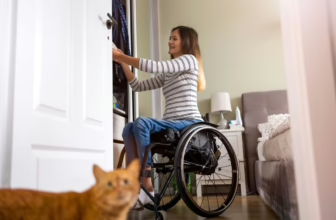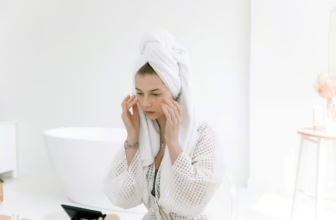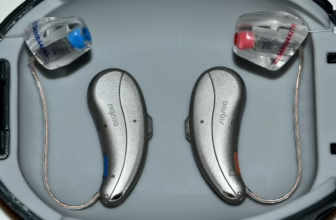As you age, it is a given that you will experience many physical changes in your body, and changes in your vision are no exception. You’ll start to notice changes in how you see things, far away things might be harder to see, or the opposite: closer things might be harder to see. Besides this, developing age-related eye diseases such as cataracts, macular degeneration, glaucoma or diabetic retinopathy are also possible. It’s important to keep up with your vision needs as your eyesight changes.
Age-Related Reflective Errors
As you grow older, there is a good chance that you will develop a reflective error in your vision. Reflective errors include nearsightedness, farsightedness, and astigmatism. Nearsightness (myopia) is when things farther away become harder to see (a negative prescription) and farsightness is when things closer up become harder to see (a positive prescription). Astigmatism is when the cornea (the clear front layer of your eye) or lens (the part of your eye that helps the eye focus) has a distorted shape. Almost 75% of American adults have some type of reflective error in their vision, so there’s a good chance that you already have one, but as you age, your prescription will worsen over time.
How to Deal with Reflective Errors
It’s very important to visit your optometrist either yearly or bi-yearly to see whether you have developed a reflective error and if your prescription has changed. The next step would be to either get a new pair of glasses, or change the lenses in your current frames to your new prescription. Buying a new pair of prescription glasses doesn’t have to be hard. You can choose yours from the comfort of your home and receive them as soon as the next day, by buying your prescription glasses online.
If you keep your old prescription glasses and don’t change the lenses to your new prescription, your eyesight will worsen quicker. You won’t be able to see perfectly with your glasses, and will therefore have to squint to be able to see properly, causing a strain in your eyes, which can worsen your vision. This is why it’s very important to change your lenses when your prescription changes. Invest in your vision and indulge in the fashion-forward appeal of Hackett glasses by CoolFrames, knowing that your eyewear is not only fashionable but also optimized for your visual needs.
Dry Eyes
As you get older, you produce fewer tears, causing dryer eyes. Dry eyes can cause a gritty or burning sensation in your eyes. Having dryer eyes is really a problem for everyone nowadays, not just older people because of our everyday lives. Nowadays we spend so much time working with technology, or reading, writing, and studying, all of which are activities during which we put a strain on our eyes, and don’t blink as much. Dry eyes can also be caused by spending too much time in air-conditioned or heated environments and wearing contact lenses. And keeping in mind that in addition to all of that, older people have naturally dryer eyes, it can become a real problem.
How to Deal with Dry Eyes
If you wear contact lenses, it would be better to switch them out for a pair of eyeglasses. Contact lenses can worsen the dry eye, which could lead to other problems. It’s also important to take breaks to rest your eyes while using a computer screen. If you aren’t already, you should be practicing the 20-20-20 rule daily, when using a computer or any other form of technology. The 20-20-20 rule is the following: After 20 minutes of using the computer, take 20 seconds to stare at something 20 ft away. By unfocusing your eyes, you let them rest and take the strain off of them. Another thing you can do to prevent your eyes from drying is to get a humidifier. Humidifiers stop the air from getting dry. And finally, you should be cleaning your eyelids every day.
Need for More Light
As you age, the muscles that control pupil size and reaction to light lose some strength, which affects the ability to focus your eyes. Your pupils may not be able to change size quickly when lighting changes. Because of this, you may start to need more light to focus your eyes, and your eyes could start being bothered by glare or bright lights.
How to Deal with Light-Related Problems
In this case, it’s a good idea to get a pair of reading glasses with more magnification, or lenses with anti-glare and blue light coatings. These coatings will help to reduce headaches and any pain in your eyes that is caused by light, especially light from the computer. The blue light coming from the computer can damage your retina, causing serious vision problems in the future, so it’s definitely a good idea to protect your eyes from it. Besides damaging your retina, it can cause a strain in your eyes, which can worsen your vision. Blue light glasses help to reduce that strain, which will therefore reduce any light-induced headaches or pain in your eyes.
These are some of the most common issues older people have with their vision. There are of course many more. And, everyone’s eyes react differently to different problems, so it’s crucial that you frequently visit your optometrist, to know what steps to take when you feel any changes in your vision. It’s possible that you could be developing a serious eye disease, with symptoms you are not even able to feel. This is something that your optometrist can detect at its early stages, and can treat before it develops too far.
Now that you know what you could be at risk for, you should contact your optometrist and schedule your next appointment!
Image by kanareva via Deposit Photos
Follow me down the rabbit hole!
I'm Alice and I live with a dizzying assortment of invisible disabilities, including ADHD and fibromyalgia. I write to raise awareness and end the stigma surrounding mental and chronic illnesses of all kinds.
Dr. Wilson graduated from Rosalind Franklin University of Medicine and Science and completed her residency in Internal Medicine at Advocate Good Shepherd Hospital in Barrington, IL. Dr. Wilson specializes in providing culturally competent and trauma-informed care to patients with physical disabilities. In addition to her private practice, she works as a science communicator, teaching health literacy to middle school and high school students in her local school district.









